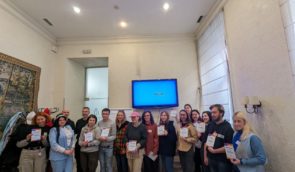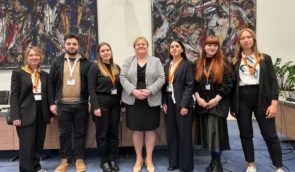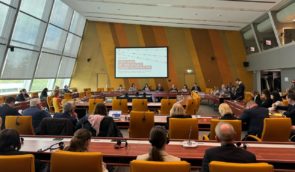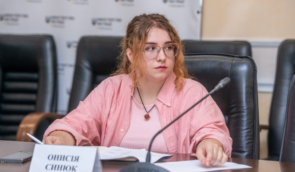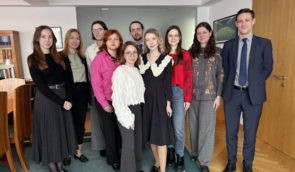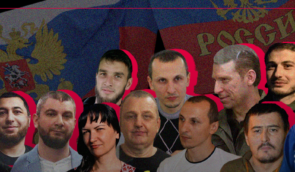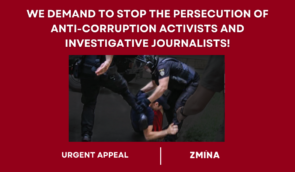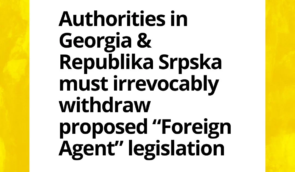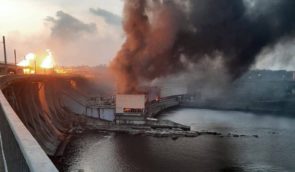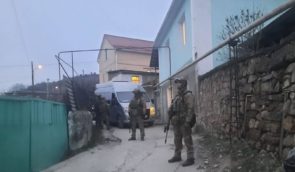Civil society calls on Zelensky to veto draft law No. 8271 providing for additional liability of military personnel
On December 13, 2022, the Verkhovna Rada of Ukraine adopted the Draft Law “On Amendments to the Criminal Code of Ukraine, the Code of Ukraine on Administrative Offenses, and Other Legislative Acts of Ukraine Regarding Peculiarities of Military Service under Martial Law or in Combat Environment” (No. 8271) of December 8, 2022 immediately as a whole. The draft law was adopted on the fifth day after registration without public discussion or at least an attempt to carry out public communication which excluded the possibility of its finalization taking into account the position of civil society. It is also impossible to conduct a high-quality information campaign or public discussion in such a short period of time.
On December 13, this draft law was put on the agenda, adopted as a whole, signed by the Chairman of the Verkhovna Rada of Ukraine, and submitted to the President for signature. This is a lightning-fast time indicator of support for the draft law which excludes the opportunity for society to express its opinion on the proposed initiative. At the same time, draft law No. 8081 designed to regulate the important issue of access of military personnel to vacations during martial law underwent the adoption procedure for more than three months and has been pending President’s signature since December 6, i.e., it has not yet entered into force.
For comparison: draft law No. 8061 of September 20, 2022 which concerns the possibility of military discharge for Ukrainian defenders released from captivity has been pending consideration at plenary session (according to the conclusion of a relevant committee of the Verkhovna Rada of Ukraine) since November, while draft law No. 7180 of March 19, 2022 which was designed to provide citizens with the opportunity, at their request, to continue military service until the age of 65 (above the current age limit) has been pending President’s signature since April.
Draft Law No. 8271, if it enters into force, will have the opposite effect to what was expected: instead of preventing the commission of war crimes and administrative offenses, it will cause the violation of the right to a fair trial and discrimination of military personnel.
Therefore, we call on the President to veto this draft law!
Why should this be done?
First, it is the deep conviction of the military and human rights community that this draft law impairs the right of the military to judicial protection and limits judges’ right to take into account all circumstances when passing a guilty verdict in cases of war crimes which constitutes a violation of the principle of the rule of law and equality before the law and court, as well as discrimination of military personnel on the grounds of professional status.
The draft law prohibits a more lenient punishment than the sanction of the article provides for or exemption from serving a sentence with probation in the case of war crimes (for example, disobeying an order, threatening or using violence against a superior, and some others). Moreover, court may take mitigating circumstances into account when sentencing persons who committed murder or other serious crime. It is proposed to abolish such a possibility when considering the cases involving military personnel which violates the principle of justice and even reasonableness. In addition, such restrictions on human rights for military personnel during martial law do not encourage a person to voluntarily join the military at a time of crisis for the state.
We are convinced that court should be able to fully assess the evidence and circumstances of each specific case. The mass media have repeatedly covered the stories of service members who, after escaping the encirclement on their own, arriving at a military unit after treatment a few hours later due to the lack of transport links, mobile communication, etc., learned that criminal proceedings had been opened against them, in particular, over voluntarily leaving a military unit and other related crimes. For the sake of justice for such persons, it is necessary to veto this draft law.
Second, Draft Law No. 8271 gives representatives of the Military Law and Order Service (MLOS) the right to examine conscripts and reservists during training and service members to check if they are not under the influence of alcohol, drugs, or medicines that reduce attention and reaction speed. While agreeing with the expediency of such an examination and its legitimate purpose, we note that clear rules for such an examination and requirements for professional skills of MLOS representatives which will allow establishing the fact of intoxication are missing in the draft law.
The draft law also does not provide for the possibility to attract witnesses or allow a commander to be present during the examination. This will have a negative impact on the impartiality of the examination procedure and the ability of service members to defend themselves.
Special attention needs to be paid to the ability of a MLOS representative to determine whether service members are under the influence of medicines that reduce attention and reaction speed. A service member may use such drugs during treatment
in a medical unit or after returning from a military hospital, without performing the duties of his position. However, the absence of any safeguards in the law regarding the examination of the military creates the risk of taking disciplinary measures against persons who have health problems as a result of the selfless protection of the integrity and independence of Ukraine.
Third, to solve the problems that arise during military service under martial law comprehensively, it is necessary to influence the causes of offenses, not just increase responsibility for the commission. In particular, it is necessary to increase the motivation for the service through its improvement.
In our opinion, increasing the size of fine without proper regulation of the deprivation of additional remuneration (which currently may not be paid to a service member in accordance with the decisions or telegrams of the Ministry of Defense of Ukraine) will not lead to a more responsible attitude of a service member to the service but, on the contrary, will worsen the morale and motivation.
And cases where criminal charges are brought against persons who had, for example, to voluntarily leave a unit (due to the lack of medical care which result in irreparable health problems or due to an illness on vacation, reports on which were ignored by a commander), will have a negative impact on the morale of not only specific individuals but entire divisions.
Given the above, in order to protect the rights of military personnel, in particular the right to an independent and impartial trial, we ask the President of Ukraine to veto Draft Law No. 8271 of December 8, 2022.
It should be revised in terms of repealing the provisions that limit the court’s right to consider the entire array of evidence and impose an appropriate punishment, and should also contain the details of the military personnel examination procedure, taking into account the protection of the rights of those undergoing treatment. Safeguards should also be set forth that would make it impossible to use the examination procedure for personal extra-statutory influence on the military.
The appeal is supported by:
NGO “Legal Hundred”
CHESNO Movement
Military Law Committee of the Ukrainian National Bar Association
Public Association “Reanimation Package of Reforms”
NGO “Women Veteran Movement”
Bar Association “Legal Company “LK”
Bar Association “Partners”
NGO “L.I.I.D. FOUNDATION”
NGO “HeroU”
Human Rights Centre ZMINA
Cherkasy Human Rights Center
NGO “Space of Opportunities”
MILLER LAW FIRM
Media Initiative for Human Rights
Charity Foundation “Readaptation and Rehabilitation Center “YARMIZ”
ПІДПИСАТИ
